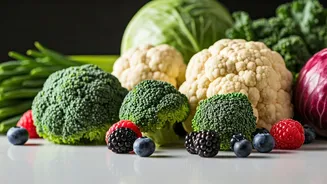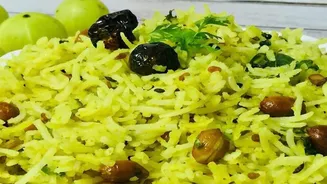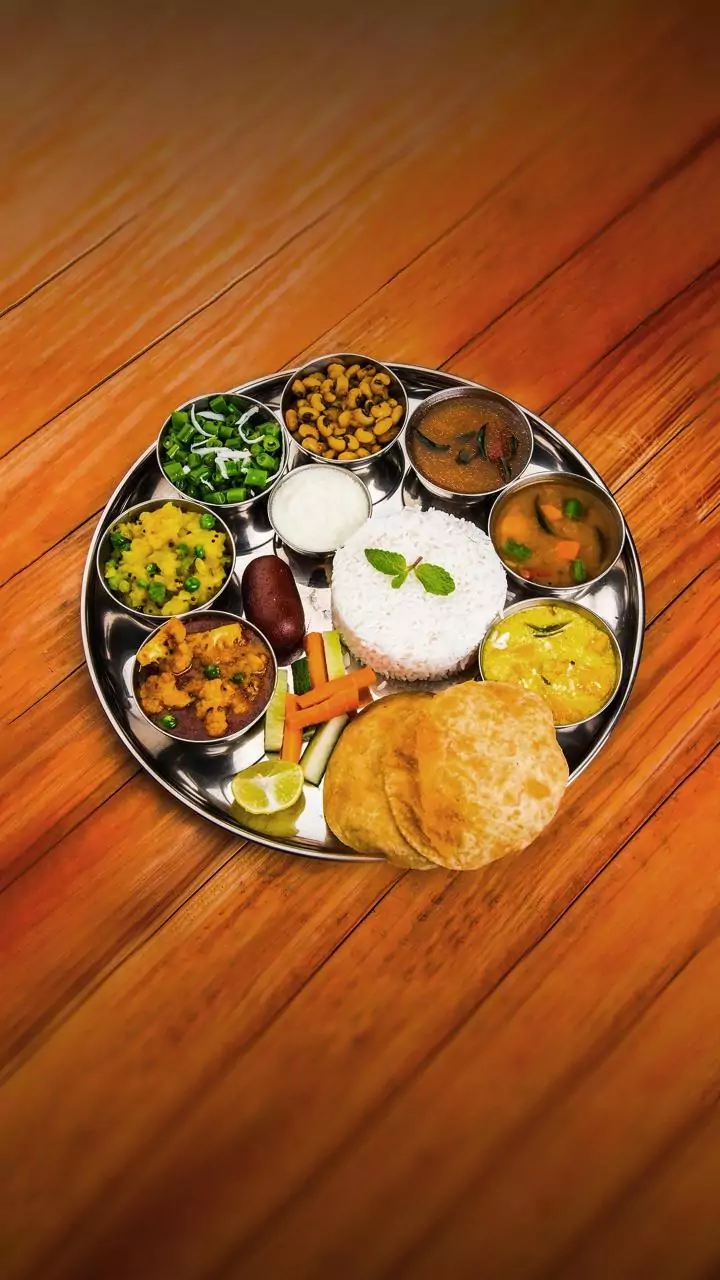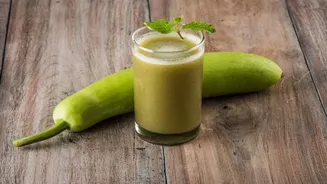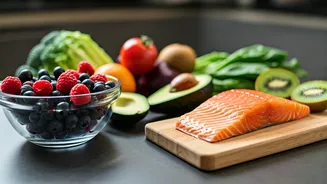Introduction: A Gut Check
Colon cancer, a significant health concern, underscores the vital importance of a balanced diet. A gastroenterologist from AIIMS has curated a list of ten
foods, offering a nutritional defense strategy. This guide aims to introduce these foods and explain how they may help reduce the risk of colon cancer. By integrating these dietary recommendations, individuals can proactively support their gut health and potentially enhance their overall well-being. This proactive approach focuses on nutrition as a vital shield against disease, empowering people with information to make informed food choices. Remember, making these simple changes in your eating habits can significantly impact your health journey.
Fiber-Rich: A Powerhouse
Fiber is a critical nutrient for colon health. Foods high in fiber promote regular bowel movements, preventing the buildup of waste in the colon. The AIIMS-trained expert stresses the importance of including various fiber-rich foods in daily meals. These include whole grains like oats, barley, and quinoa, offering high fiber content to support gut health. Additionally, consuming plenty of fruits and vegetables, such as apples, berries, broccoli, and Brussels sprouts, also provides essential fiber. Adding these into your diet regularly can help improve overall digestive health and decrease the risk of colon cancer. Consuming these fiber-rich choices can also reduce other health issues like constipation and bloating.
Cruciferous: Broccoli, Cauliflower
Cruciferous vegetables such as broccoli and cauliflower deserve a spot on the list, as they are known for their cancer-fighting properties. These vegetables contain compounds like sulforaphane, which exhibit anticancer effects. The gastroenterologist suggests that regular consumption of these veggies may help detoxify the body and protect against colon cancer. Experiment with different cooking methods like steaming, roasting, or incorporating them raw into salads to benefit from their health-boosting attributes. Combining these vegetables with other fiber-rich foods enhances their beneficial effects and contributes to maintaining a strong and healthy gut. Incorporating these kinds of veggies in your daily meals can also prevent other kinds of cancers.
Berries: Powerful Antioxidants
Berries like blueberries, strawberries, and raspberries are rich in antioxidants, which are vital for fighting cancer. The gastroenterologist emphasizes their role in reducing oxidative stress and inflammation, key factors in cancer development. These antioxidants help shield cells from damage, promoting overall cellular health and potentially lowering the risk of colon cancer. Enjoying a variety of berries offers a delicious way to boost your antioxidant intake, enhancing your diet’s protective effects. Add them to smoothies, yogurts, or simply eat them as a snack. They are versatile, tasty, and loaded with health advantages. Regular consumption of berries is an easy and effective way to fortify your body's defenses.
Legumes: Beans, Lentils
Legumes, including beans and lentils, make a notable appearance in this dietary guide. These foods are a good source of fiber and also contain other cancer-preventing compounds. The gastroenterologist advises incorporating legumes into your diet to enhance gut health and possibly lower colon cancer risk. The fiber in legumes aids in regular bowel movements, while other compounds exhibit antioxidant and anti-inflammatory properties, providing additional protection. Add them to stews, soups, or salads for a nutritious boost. Legumes are affordable, versatile, and packed with health benefits. Make them a regular part of your diet to enhance your overall health and well-being.
Garlic: Antimicrobial Benefits
Garlic is another recommended food due to its numerous health benefits. It contains allicin, a compound with potent antimicrobial and antioxidant properties. The gastroenterologist highlights that garlic may help lower the risk of various cancers, including colon cancer, by combating inflammation and protecting cells from damage. It can be easily incorporated into cooking. Whether you add it to stir-fries, sauces, or roasted vegetables, garlic enhances both flavor and nutritional value. Regular garlic consumption can fortify your body's defenses. It is a simple yet impactful way to add a protective layer to your diet and support your health.
Turmeric: Anti-Inflammatory
Turmeric, with its active compound curcumin, is well-regarded for its anti-inflammatory properties. The gastroenterologist advocates for turmeric's inclusion in the diet due to its potential to reduce inflammation, which is a major factor in cancer development. Curcumin helps protect the cells and possibly reduces the risk of colon cancer. You can easily add turmeric to your diet by adding it to curries, soups, or even smoothies. To maximize absorption, consider pairing turmeric with black pepper. The combination of turmeric and black pepper is a powerful way to incorporate it into your meals, and reap its health advantages, making it an effective way to boost the protective effects of your diet.
Yogurt: Probiotic Support
Yogurt, especially those rich in probiotics, makes an appearance due to its positive impact on gut health. Probiotics assist in maintaining a balanced gut microbiome, which is essential for preventing colon cancer. The gastroenterologist recommends consuming yogurt to support the growth of good bacteria and improve overall digestive health. Choose yogurts with live and active cultures. Incorporate yogurt into your breakfasts, snacks, or use it as a base for smoothies. Regular consumption of probiotic-rich foods such as yogurt can help boost immunity. Taking care of your gut health is a key step towards overall wellness.
Green Tea: Antioxidant Power
Green tea is also recommended for its rich antioxidant content. It contains compounds like epigallocatechin gallate (EGCG), which have been linked to cancer prevention. The AIIMS gastroenterologist advises consuming green tea due to its potential to reduce inflammation and oxidative stress, protecting cells from damage. Drink it hot or iced, enjoying its refreshing taste and health benefits. The antioxidants in green tea offer an extra layer of protection, which supports overall health. Incorporating green tea into your diet is an easy and delicious way to fortify your body's defenses. Make green tea part of your routine to boost your wellbeing.
Nuts and Seeds: Nutrients
Nuts and seeds are nutritious additions to the list, providing essential nutrients that boost colon health. These foods are packed with fiber, healthy fats, and antioxidants, which play a crucial role in preventing colon cancer. The gastroenterologist encourages the consumption of various nuts and seeds, like walnuts, flaxseeds, and chia seeds. Incorporate them into your meals by sprinkling them on salads, adding them to smoothies, or using them in baked goods. By consuming nuts and seeds, you're not only improving your gut health but also providing your body with essential nutrients. Regular inclusion of nuts and seeds in your diet can contribute significantly to overall well-being. These foods are a simple and effective way to support your gut health and potentially reduce the risk of colon cancer.
